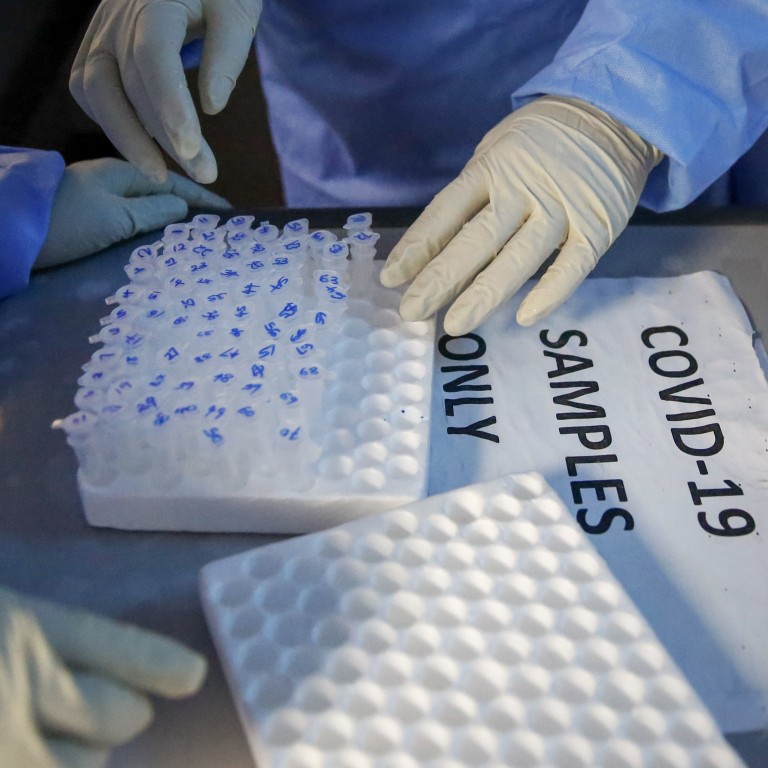
Coronavirus mutated 32 times inside South African HIV-positive woman over course of seven months
- If more such cases are found, it raises the prospect that HIV infection could be a source of new variants
- It is not clear whether the mutations the 36-year-old South African carried were passed on to others
The case report, which has not been peer-reviewed, was published as a preprint on medRxiv on Thursday. The woman, who has not been named, was identified as a 36-year-old living in South Africa.
The coronaviruses gathered 13 mutations to the spike protein, which is known to help the virus escape the immune response, and 19 other mutations that could change the behaviour of the virus.

04:12
What do we know so far about the Covid-19 variants?
It is not clear whether the mutations she carried were passed on to others, the Los Angeles Times reported.
If more such cases are found, it raises the prospect that HIV infection could be a source of new variants simply because the patients could carry the virus for longer, Tulio de Oliveira, a geneticist at the University of KwaZulu-Natal in Durban and the study’s author, told the Times.
But it is probably the exception rather than the rule for people living for HIV, because prolonged infection requires severe immunocompromise, Dr Juan Ambrosini, associate professor of infectious diseases at the University of Barcelona, said. Indeed, the woman in the case study was immunosuppressed.
WHO switches to Greek alphabet for variant names to avoid stigma
The findings are important for the control of Covid-19 because these patients could be a continuous source of transmission and evolution of the virus, Ambrosini said.
Immunosuppressed patients could carry the coronavirus longer than others.
This case could easily have gone unnoticed, de Oliveira told the Times . This was because after the woman was treated in hospital for her initial symptoms, she displayed only mild symptoms of Covid-19, even though she was still carrying the coronavirus, de Oliveira said.
Scientists only spotted this case because she was enrolled in a study on 300 people with HIV looking at their immune response to Covid-19.
The researchers also found that four other people with HIV had carried the coronavirus for longer than a month, they told the Times.
Only one other case of a person with HIV carrying the coronavirus for a prolonged period of time had been published previously.
Some patients who have been immunosuppressed for other reasons have been seen to carry the coronavirus for prolonged periods of time, Ambrosini said. For instance, he said, there have been reported cases of people with kidney transplants testing positive for almost a year.
The finding could be of particular importance for Africa – which had 20.6 million out of its 37.6 million people living with HIV in 2020. The WHO on Friday warned that a sharp rise in infections could turn into a continent-wide third wave of Covid-19.

